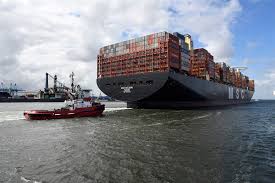Everyone is reacting to the Covid-19 virus and the uncertainty and stress of the resulting changes are making us all fearful. Take a deep breath and remember our priorities:
- Care for people and prevent the spread of any illness
- Provide for continuity of operations to service customers
- Minimize financial impacts to employees, customers, and our operations.
Internally, Spartan Logistics will take all conceivable actions to protect and inform our team and their families.Once this is accomplished, we have an obligation to consider the impact the virus has on our customers and how we can assist them.
Major retailers such as Apple have reported that a prolonged outbreak could interrupt its supply chain, while Amazon has expressed concern that it won’t be able to import enough inventory to meet its annual Prime Day obligations. As one of China’s four central railway hubs, a virus outbreak quickly spread along the supply chain to the rest of the world, with outbreaks in 47 countries. Nearly 95% of Fortune 1000 companies are experiencing supply chain distruptions due to the rippling effect of the virus. Companies of less than 100 employees are likely going to be effected as well, seeing delayed goods, unfulfilled orders and unpaid invoices.
Closure of the world's manufacturing hub impacts container shipping, as it is a vital facilitator of the Asian and global supply chains. Shutdowns of international plants mean ships can't get into Chinese ports as the inbound and outbound of goods slows. Containers are stuck on docks, waiting for workers to return to ports. Still, more are idling in "floating quarantined zones" due to routes connecting China and Hong Kong with India, Canada, the United States, and West Africa. This will create an imbalance of containers returning to Asia, causing major disruptions to flows of food and raw materials to the U.S.
The virus is also linking severe disruptions to inbound and outbound air cargo shipments, trucking and rail cargo services, affecting industries such as automotive, pharmaceutical, medical supplies, and high-tech manufacturing. Even where factories are back in operation, specific parts may be missing or in short supply. Businesses should be carefully monitoring the supply-demand and build a buffer stock if possible. Consider having an alternate inventory plan in place in case your usual storage locations are impacted. Long-term companies should reconsider how much U.S. based "safety stock" is actually required in an era where global pandemics are a reality.

The biggest impact now is how the coronavirus outbreak could have on U.S. consumers. Manufacturers are now having a difficult time getting raw materials to their facilities and final product to customers, while social media and the media in general spread panic and negatively impinget consumer behavior. Restaurants, travel companies, and entertainment hubs will be the first to be significantly impacted by changes in consumer behavior.
3PL's should have a contingency plan in place for their customers
Consistent communication with suppliers and customers can help safeguard those relationships. Working with a 3PL can help lessen the blow. 3PL's should prioritize the health of their workforce to make sure orders are fulfilled with a reduced workforce.
In preparation for the Corona virus, 3PL's should consider the following:
- Refresher/repeat training on on Health and Safety classes specific to personal health. This includes updated details on handwashing and hand sanitation, specific instructions regarding Covid-19, and reminders that sick employees must stay home and this now includes people with cold symptoms. These should be completed for all employees.
- Issuing instructions for the key points from the above training class be repeated in shift start-up meetings with a focus on hand sanitation and staying home/sent home if cold (and as always flu) symptoms are apparent.
- Review the company travel policy.This is likely to be a fluid process.
- Reviewing the Disaster Avoidance/Disaster Recovery program to update it for pandemics. This will likely include additional sanitation efforts and naming additional back-up staff to all positions.
- Developing supply chain risk mitigation plans that incorpotate alternate sources for inventory.
Spartan's portfolio of real estate, distribution, and transportation management services are prepared to assist you with you supply chain challenges before and after any distruption you may be having.
Give us a call at (614) 497-1777 to discuss your options.
Topics: Supply Chain Strategy, Logistics News, Regional Distribution Center

